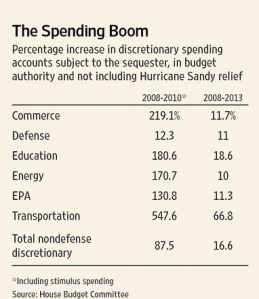I’m a huge fan of so-called tax havens. I’ve been working for more than 10 years to protect and promote the values of tax competition, fiscal sovereignty, and financial privacy.
The bureaucrats at the OECD even threatened to have me tossed in a Mexican jail because I was advising representatives of low-tax jurisdictions on how best to resist fiscal imperialism.
Why am I fighting this battle and taking occasional risks? Because tax havens are a huge plus for the global economy.
- They generally have better fiscal policy, often with zero income taxes.
- They encourage other nations to adopt better fiscal policy because of tax competition.
- They provide refuge to people suffering fiscal oppression.
- They provide privacy protection to people suffering political persecution.
- They benefit the American economy, both directly and indirectly.
Statist politicians, not surprisingly, resent and despise tax havens. They often attack these low-tax jurisdictions because they don’t want limits and constraints on their ability to increase taxes and spending. They want taxpayers to be “captive customers” who can be fleeced without any options to escape.
But statist politicians often are hypocrites. I’ve already written about lawmakers such as John Kerry, Bill Clinton, John Edwards, and others on the left who have utilized tax havens to boost their own personal finances.

“Our motto is ‘do as I say, not as I do'”
Now President Obama has nominated another one of these hypocrites to be Secretary of the Treasury, and this is generating a bit of controversy. Here’s some of what the Washington Post has reported.
Treasury secretary nominee Jack Lew will face questions at his confirmation hearing next week about an investment fund registered in a Cayman Islands building that has been called a notorious site for tax haven abuse. Lew held between $50,000 and $100,000 in the fund… The investment fund could become an issue during the upcoming hearing because Lew’s job as Treasury secretary would give him a major role in shaping the administration’s tax policy. The president has targeted tax haven abuse as a major problem in the country’s tax system. Sen. Charles E. Grassley (R-Iowa), a senior member of the committee, vowed to ask Lew about the Citigroup investment. “President Obama has been almost obsessively critical of offshore investments,” Grassley said in a statement Friday. “That makes this Cayman Islands investment of his top official and now Treasury secretary nominee worthy of attention. The irony is thick.”
The irony is doubly thick because we recently finished a presidential campaign where the President’s campaign viciously attacked Mitt Romney for doing exactly the same thing as Jack Lew. And now the White House is pointing out the same thing I pointed out about Romney – that there is nothing illegal, immoral, or unethical about investing in a place that has good tax laws and good governance.
“Jack Lew paid all of his taxes and reported all of the income, gains and losses from the investment on his tax returns,” White House spokesman Eric Schultz said. “He played no role in creating, managing or operating the fund, and he sold his investment in 2010 at a net loss.” …The address for the Citigroup fund is a building in the Cayman Islands known as the Ugland House, which President Obama singled out in a 2009 speech railing against tax haven abuse. “Either this is the largest building in the world or the largest tax scam in the world,” Obama said.
Not surprisingly, the media is remarkably quiet about Lew’s investments,even though they were very curious about how Mitt Romney was investing his money.

Ugland House: Approved for leftists
It’s also worth noting that the irony is triply (is that even a word?) thick since Lew invested in a fund based at Ugland House.
What’s Ugland House?
Well, you’ll notice in this video that a certain presidential candidate referenced Ugland House back in 2008.
And Democratic Senators also have launched big attacks on Ugland House.
But anybody want to place any bets on whether that will matter when it comes time to vote on Lew’s nomination?

